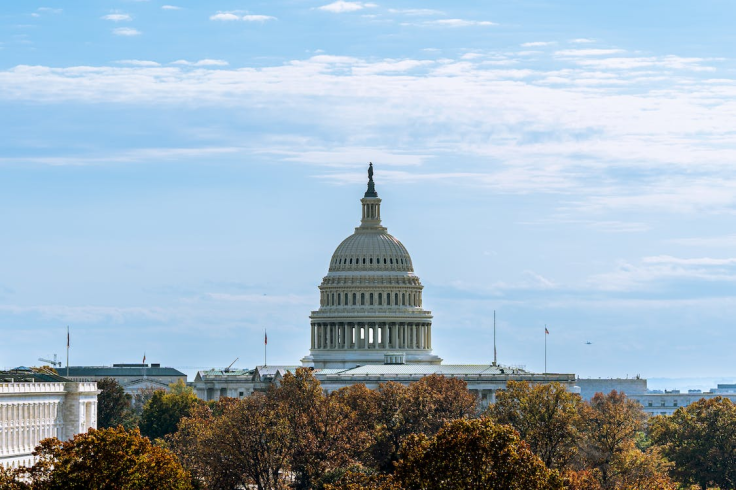Harvard President Claudine Gay Faces Plagiarism Allegations, House Committee Demands Answers
ByIn a surprising turn of events, Harvard University's president, Claudine Gay, is under scrutiny for allegations of plagiarism, prompting the House Committee on Education and the Workforce to initiate an inquiry into the matter. Led by Representative Virginia Foxx, the committee aims to uncover details about Harvard's response to the accusations and assess the consistency in applying its academic integrity policies.

Background of Allegations
The controversy first surfaced in October when reports of potential plagiarism involving President Gay reached the Harvard Corporation. An independent review conducted by the governing board concluded that there was no violation of Harvard's standards. However, corrections were made for two previously published articles. Recent developments acknowledge additional instances of "duplicative language without appropriate attribution" in Gay's 1997 dissertation.
Representative Foxx, in a letter addressed to the Harvard Corporation, has requested a comprehensive set of documents and emails pertaining to the plagiarism allegations. The committee emphasizes the importance of a meticulous investigation, urging Harvard to treat allegations against faculty with the same gravity as those against students.
Threat to Federal Funding
Foxx issued a stern warning, highlighting the potential impact on Harvard's access to federal funds if consistent academic integrity standards are not upheld. She expressed concern that overlooking faculty misconduct could tarnish the university's mission and diminish the value of its education.
Committee's Oversight Authority
The letter underscores the committee's authority to conduct oversight over postsecondary education programs. This authority enables the committee to scrutinize Harvard's responses to plagiarism allegations and ensures that the university adheres to recognized accreditor standards, particularly in maintaining academic integrity.
Plagiarism Allegations Amid Antisemitism Testimony
The timing of the plagiarism allegations is significant, coinciding with President Gay's involvement in a House hearing on campus antisemitism. Despite calls for her resignation, the Harvard Corporation has publicly supported Gay in the face of the plagiarism accusations.
Broader Investigation into Antisemitism
It's noteworthy that the House Committee on Education and the Workforce is already conducting a broader investigation into Harvard's responses to incidents of antisemitism. This overarching inquiry positions the committee to evaluate the university's handling of various challenges related to academic conduct.
Foxx underscored the gravity of the situation, particularly for an institution like Harvard, which positions itself as one of the top educational institutions in the country. The committee expects a detailed response from Harvard by December 29, seeking clarification on the university's approach to the allegations and its commitment to upholding academic standards.
Potential Consequences and Broader Implications
As the investigation unfolds, the outcome could have broader implications for how universities address allegations of plagiarism involving high-ranking officials. The risk of losing federal funding adds a layer of accountability for institutions to prioritize and maintain academic integrity standards.
Harvard's Response and Defense
Harvard, in response to the committee's inquiry, is expected to provide a thorough account of its internal investigation into the plagiarism allegations against President Gay. The university has staunchly defended its president, emphasizing the findings of the independent review that deemed the allegations unsubstantiated. However, with the acknowledgment of additional instances in Gay's dissertation, the university now faces the challenge of maintaining its defense.
Consistency in Applying Policies
One of the central concerns raised by the committee is the consistent application of Harvard's policies. Representative Foxx questions whether the university is treating allegations against faculty members with the same rigor it applies to students. The committee seeks transparency in understanding the procedures followed in assessing and addressing plagiarism claims involving high-profile figures.
Foxx's warning about potential repercussions on Harvard's federal funding underscores the seriousness with which the committee views academic integrity. Federal funds are a critical lifeline for universities, and the threat of their withdrawal serves as a powerful incentive for institutions to ensure that their internal processes are robust and fair.
Impact on Harvard's Leadership
The allegations against President Gay come at a time when Harvard is already under scrutiny for its handling of antisemitism on campus. The outcome of this investigation could not only impact Gay's leadership but also influence the broader perception of Harvard's commitment to ethical and academic standards.
Reflection on Academic Integrity
This case brings to the forefront broader questions about academic integrity within prestigious institutions. The expectation of exemplary conduct from leaders in academia is heightened, and any deviation raises concerns about the institutional commitment to upholding the principles of honesty and originality.
The House Committee's inquiry into plagiarism allegations against Harvard President Claudine Gay adds another layer of complexity to the ongoing discussions about academic integrity, leadership accountability, and the reputation of esteemed educational institutions. As the investigation progresses, the spotlight on Harvard's response and the potential consequences for federal funding may set a precedent for how universities handle similar situations in the future. The outcome could shape not only the fate of President Gay but also the broader narrative around the intersection of academic standards and institutional leadership.
© 2025 University Herald, All rights reserved. Do not reproduce without permission.








